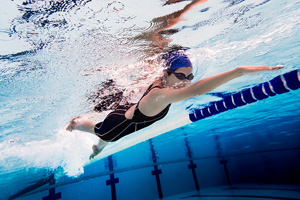
September 20th, 2019, marks the 4th annual International Day of University Sport. The day has steadily gained more international awareness since its official proclamation from UNESCO in 2015 and its first celebration in 2016.
According to the International University Sports Federation (FISU), the day was created out of a desire to “link universities and local communities through sport, physical activity and healthy living.” UNESCO chose September 20th because
it occurs at the start of the new university academic year, and university sports competitions begin in most countries around the world at about the same time.
Showing support for international student athletes
To celebrate International Day of University Sport, institutions can show their support for international student-athletes in the United States. Potential international student-athletes face many barriers to higher education in the U.S. such as paying
higher tuition costs without federal financial aid assistance; meeting the varied admissions requirements for different institutions, each with their own application process; and navigating the complex U.S. immigration system.
Although international student-athletes may attend a two-year institution first, the goal is often to obtain a four-year degree while competing and progressing in their sport. For the vast majority of prospective international student-athletes, this means
applying for athletic eligibility through the NAIA or NCAA. Both organizations have an eligibility center that evaluates the academic and competitive histories of incoming first-year students.
NAIA Eligibility Center staff have noted an increase in student-athletes coming from East Asia and the Middle East. Though it is still more common for international student-athletes to come from Europe and South America, the increasing diversity of international
student-athletes is encouraging as the rate of international student growth at U.S. institutions is slowing. Overall, the number of international student-athletes attending U.S. institutions continues to rise, and the International Day of University
Sport can help draw attention to this diverse group of students.
Communication challenges for international athletes
Many international student-athletes share a number of common misunderstandings and misconceptions about the U.S. education system and how athletic eligibility works. Communication is a common, major challenge for potential international student-athletes.
Students need to maintain open lines of communication with admissions officers, coaches, recruiters, and the staff determining their eligibility, and it can be overwhelming to keep all the information straight. Student-athletes frequently hear different
information about requirements from each party and may not know how it relates to them as they pursue higher education and participate in university sports abroad.
Another facet of communication that causes prospective international student-athlete problems is a lack of awareness about just how important it is to disclose all academic and competitive history. The staff of the NAIA Eligibility Center often find that
international student-athletes believe their international post-secondary enrollment or participation in competition isn’t relevant and that they can start again in the U.S., but specific eligibility rules will apply to the student depending
on secondary school completion, post-secondary enrollment history, and competitive experience. Full disclosure from the international student-athlete about their educational history and competition is very important.
Resources
One way the NAIA and NCAA demystifies the eligibility process is by publishing open-access resources online. Both organizations have published country-specific resources of which documents are required and how they should be sent to the eligibility
center as well. They have also published information about the criteria used to evaluate competitive experience. Additionally, they have published country-specific academic standards that help create transparency, showing which credentials will
count as comparable to a U.S. high school diploma and how their grades are converted to a U.S. GPA.
FISU encourages people to promote International Day of University Sport by getting active and using the hashtag #LetsIDUS on social media. Be sure to check out what is happening for this year’s International Day of University Sport. Check out
this video
and these guidelines
from FISU for some tips to plan your own IDUS event.